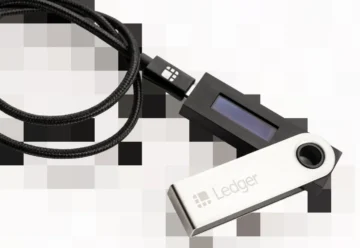U.S. Regulators Start Proceedings Against Crypto Exchange Coinbase

The U.S. Securities and Exchange Commission (SEC) accuses Coinbase of operating as a securities exchange, broker, and clearing agency without proper registration. Similar charges have been made by several regional financial services regulatory agencies.
The SEC filed a lawsuit in the U.S. District Court for the Southern District of New York, accusing the cryptocurrency exchange Coinbase of offering unregistered securities and several other violations of federal law. Besides, according to the regulator, the company evaded the disclosure scheme established for securities markets and also conducted unregistered activities as a securities exchange, broker, and clearing agency.
According to the lawsuit documents, the SEC considers the securities to be tokens:
- Solana (SOL);
- Cardano (ADA);
- Polygon (MATIC);
- Filecoin (FIL);
- The Sandbox (SAND);
- Axie Infinity (AXS);
- Chiliz (CHZ);
- Flow (FLOW);
- Internet Computer (ICP);
- Near (NEAR);
- Voyager Token (VGX);
- Dash (DASH);
- Nexo (NEXO).
The regulator said Coinbase’s staking program, which includes five cryptocurrency assets and involves an investment contract, also falls within the definition of a security.
Defendants in the regulator’s lawsuit are Coinbase, Inc. and Coinbase Global, Inc. The company’s CEO Brian Armstrong and other representatives of the cryptocurrency exchange don’t appear in the lawsuit. Gary Gensler, Chair of the SEC, justified the regulator’s action by protecting the interests of the exchange’s customers, who, in his opinion, were vulnerable to fraud and manipulation.
Coinbase is also accused of trading in unregistered securities by a task force of regional regulators that includes supervisors from Alabama, California, Illinois, Kentucky, Maryland, New Jersey, South Carolina, Vermont, Washington, and Wisconsin. A statement to that effect was issued by the Alabama Securities Commission (ASC). Additionally, regulators accused the crypto exchange of failing to insure the accounts of 3.5 million Coinbase Earn members by the Federal Deposit Insurance Corporation (FDIC) or the Securities Investor Protection Corporation (SIPC). Coinbase was given 28 days to prove the validity of its activities.
Brian Armstrong, CEO of Coinbase, commented on the regulators’ actions, welcoming the opportunity to clarify cryptocurrency regulations through litigation. He also noted inconsistencies in the positions of the SEC and the Commodity Futures Trading Commission (CFTC) as to which cryptocurrencies should be considered securities and expressed confidence in Coinbase’s position, promising vigorous defense.
It’s worth noting that the SEC allowed Coinbase to become a public company in April 2021 once the crypto exchange had been operating in compliance with regulations for over ten years. This was stated by Paul Grewal, Coinbase’s Chief Legal Officer, during a congressional hearing on June 6. He also noted that the crypto exchange’s legal entities are licensed by the Department of the Treasury, the Securities and Exchange Commission, and the Commodity Futures Trading Commission. Moreover, Coinbase is licensed to conduct financial activities in 45 states.
Company representatives also released a “By the numbers” video, which, among other things, pointed out that the staking program was mentioned 57 times in the S1 report Coinbase filed with the SEC prior to its IPO. Additionally, the crypto exchange reps claim to have met with the SEC executives 30 times in 2022 to ask for regulatory guidance.
Yesterday it became known that the SEC filed a similar lawsuit against several legal entities of Binance and its CEO, Changpeng Zhao. Experts argued immediately that there seems to be some consistency in the actions of regulators towards major exchanges and claimed Coinbase to be the next likely “victim” of the SEC.











